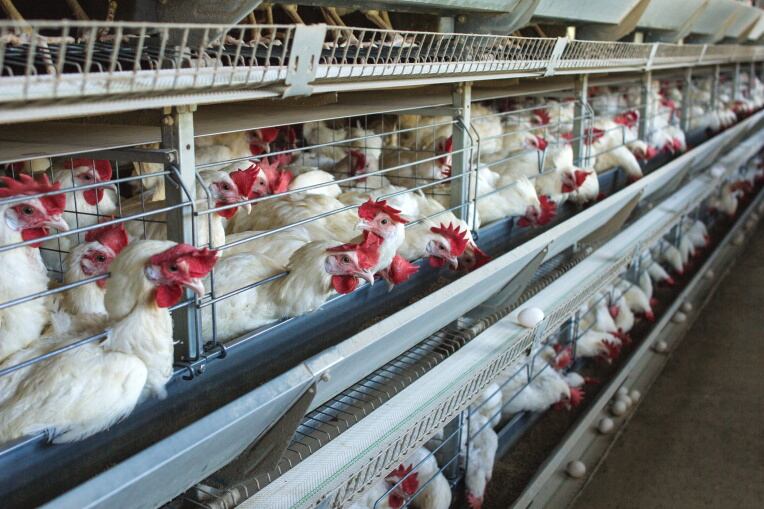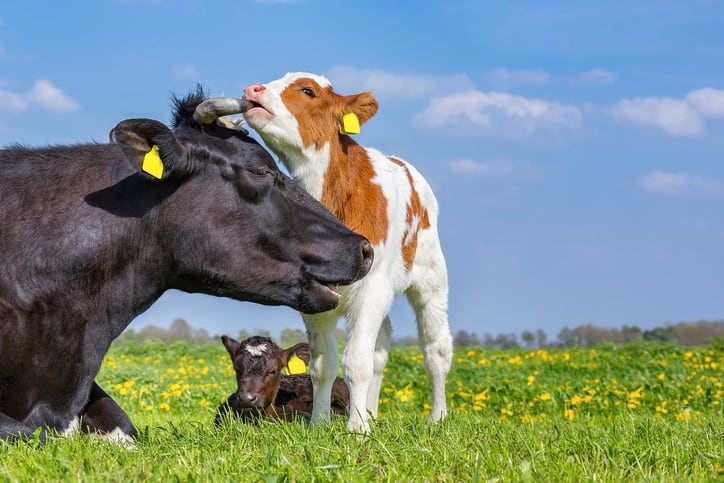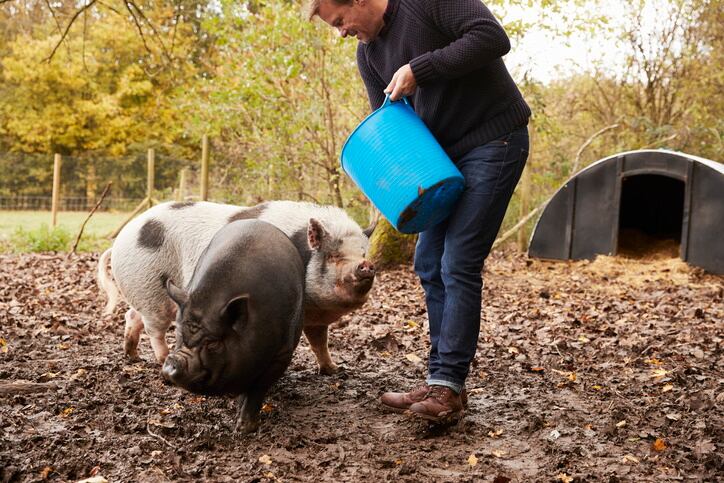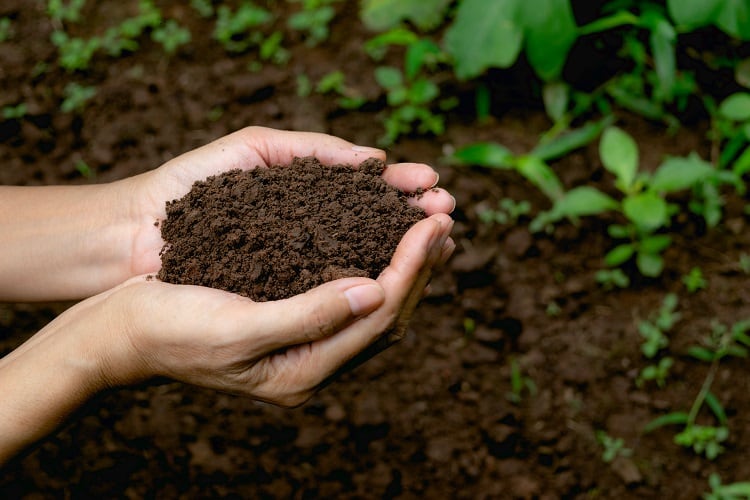This week, the European Parliament voted to back a report by its Agriculture Committee (AGRI) addressing on-farm animal welfare standards, with a majority of 72% voting in favour of the text.
The report looked at the implementation of EU legislation on the welfare of food-producing animals. It supported changes the Commission is making to revise animal welfare legislation by 2023, including new requirements on transport and slaughter. Some uncontroversial calls were made around the need to shorten nutrition supply chains and the ‘End the Cage Age’ European Citizens Initiative was noted (the European Commission having already committed to banning caged farming by 2027).
The majority of the conclusions and recommendations, however, concentrated on the financial wellbeing of livestock farmers. The document focused on the ‘strides’ made by the livestock sector to boost welfare and said that financial support, via an EU-level framework, should be put in place to aide further efforts. The text stressed that any improvement to animal welfare comes at a cost to farmers, stating ‘additional public aid or a clear return on investment from the market must be set out, otherwise the rise in production costs will impede or prevent farmers from investing in animal welfare’. It suggested that improved standards therefore need to ‘take place gradually and in a responsible manner’.
In short, according to both animal welfare advocates and farming lobbies, the document is a vote of confidence in Europe’s current livestock farming practices. This is where agreement between the two camps ends.
Farmers face 'regular livestock-bashing'
Copa and Cogeca, who represent farming interests, said the approved text ‘shows the good balance found by the rapporteur MEP Jérémy Decerle’. The approach ‘shows that the European Parliament has confidence in the ability of its farmers to put in place the most advanced animal welfare legislation worldwide’, they claimed.
This was achieved despite what the farming advocates said was ‘regular livestock-bashing at EU level’.
“Today the question of animal welfare is at the centre of many farmers and cooperatives thoughts, so it is essential that the EU offers coherency and support at various levels to support farm initiatives. It is this demand for overall coherency that we welcome in the report voted today. A coherency on the implementation of the existing and future rules of animal welfare across all Member States that should maintain the level playing field in the EU’s Single Market. A coherency with the EU trade policy. EU farmers can do their utmost to increase animal welfare standards, but it would be understandable if these efforts turn into a competitive advantage for the EU's trading partners applying lower standards than we do. Finally, a coherency vis à vis science. The issue of animal welfare is complex and evolving, we agree that it is essential that decisions on this matter are based on solid scientific evidence, including impact assessments,” Copa and Cogeca said in a statement.
“Animal welfare also involves the welfare of farmers. Therefore, it is important that the EU doesn’t forget that one of its essential missions is to support farmers in providing EU citizens and the global market with high quality, affordable and safe food, produced in a sustainable manner. Farmers and their cooperatives are fully aware that the consumers trust in the high value and quality of the European agricultural and food sector depends on maintaining high standards for animal health and welfare.”
This ‘balanced approach’ should inform the European Commission’s revision of animal welfare legislation, which will be carried out under the Farm to Fork strategy, the farming associations argued. They want to see a ‘holistic’, ‘flexible’ and above all ‘voluntary’ approach that guarantees the ‘competitiveness’ of European farmers.
But animal rights advocates are not satisfied. The report will do ‘nothing’ to improve the ‘cruel conditions’ in which intensively reared livestock are kept across the EU. “This is another very disheartening result from the EU Parliament. The assembly has voted for a report that completely fails to meet its stated goal of protecting and improving the welfare of farmed animals. Instead, it has endorsed a text that reads as if it was written 50 years ago, that pays no attention to the cruelty, health risks and environmental damage caused by the factory farming system that prevails today, and ignores scientific advances that can address these problems,” Olga Kikou, Head of Compassion in World Farming EU, responded.
Watering down ambition? MEPs say fois gras farming ‘respects animal welfare’
Indeed, Compassion in World Farming argued, the latest report actually weakens previous decisions to come out of the European Parliament on animal welfare. A controversial case in point is the new resolution’s approach to fois gras.
In its response to the End the Cage Age Citizens Initiative, the European Parliament called for a ban on the force-feeding of poultry, which it described as ‘cruel and unnecessary’. This week, that direction of travel was reversed. MEPs voted against two amendments calling for the assisted feeding of poultry in foie gras production and adopted a text that suggested the fattening phase of geese and ducks “respect(s) the animals’ biological parameters and comply with animal welfare criteria”.
Copa-Cogeca welcomed the development, noting it is not possible to produce the product without force feeding the birds and claiming that foie gras production is ‘extensive’ and takes place in open air conditions where birds spend ‘90% of their lives in open air runs where they can grow freely surrounded by their peers’.
“We very much welcome the support expressed by the Parliament to our sector. Our constant efforts to maintain our specificities and high animal welfare standards have been heard,” Christophe Barrailh, President of Euro Foie Gras, responded.
Economic interests at play?
Compassion in World Farming flagged that the report was drafted by the Agriculture Committee, a group of MEPs with ‘close ties to animal agriculture interests’.
Indeed, they said, in accepting this draft of the document MEPs ‘turned a deaf ear’ to recommendations from the Parliament’s own Environment Committee, which has backed efforts to mitigate the impact of animal agriculture on the climate and biodiversity crisis and address concerns around the rise in antimicrobial resistance linked to the use of antibiotics in agriculture. The Environment Committee had also called for a shift in the European agricultural system away from factory farming and towards extensive pastural and regenerative systems.
These accusations come as the European Ombudsman wrote to the Commission to ask how it is ensuring ‘transparency and balanced representation of interests’ in relation to the Common Agriculture Policy.
“The Ombudsman noted that the public needs to be reassured that upcoming decisions related to climate action and environmental protection are not unduly influenced by special interests,” the body argued. It wants to see evidence that non-economic interests are adequately represented in its stakeholder forums and asked whether the EC would monitor information supplied by Member States on how CAP budgets are distributed.
To Compassion in World Farming, the EP resolution stands as clear evidence of the sway economic interests have over policy decisions and implementation at a European level.
“Besides completely missing its stated objective by devoting much of the text to the economic interests of farmers rather than the welfare of their animals, the report also contradicts previous Parliament positions. For example, whereas the assembly’s resolution last year on the Farm to Fork strategy highlighted the importance of setting higher animal welfare standards in legislation, today’s text merely calls for more clarity rather than a tightening-up of the rules."
Kikou concluded: “In drafting this report at its own initiative, Parliament generated a great opportunity to make a constructive contribution to the development of a concrete strategy to address the horrendous animal welfare problems that are widespread on EU farms. But it has chosen to ignore these and instead issued a thinly disguised call for farmers to seek more funding just to maintain the cruel status quo.”
National rules versus EU consensus?
Copa-Cogeca was also quick to stress the importance of a standardised approach to livestock farming across the Single Market. “It is necessary to underline that as enshrined in the TFEU and underpinned by rules of free market, every farmer should be able to sell their animals across the EU with freedom of choice. Besides, the same TFEU gives every production method that farmers may have access to the right to exist, always in compliance with the already high animal welfare standards applicable by law in the EU.”
This could be seen as reflecting concern over cracks that are appearing between different Member States and their approach to livestock production and labelling requirements. Some countries are willing to move further, faster, to re-think the role animals play in the food supply chain.
The Netherlands, for instance, indicated this week that plans to reduce nitrogen emissions should result in a 30% reduction in livestock numbers within a decade. The current cabinet has earmarked €25 billion in nitrogen reduction, with the majority of spend expected to focus on reducing livestock and nature restoration projects.




